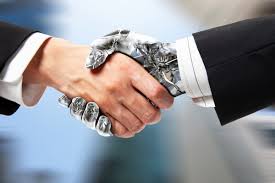Source: mentaldaily.com
n many nations, artificial intelligence (AI) replaced tasks human intelligence is capable of, decreasing labor costs and even improving our comprehension of various industries through the use of machine learning.
A new paper by Rensselaer Polytechnic Institute asserts, while artificial intelligence may be beneficial for businesses in sectors such as healthcare, web programming, and industrial engineering, some establishments may not thrive similarly. The findings appeared in the Journal of Service Management.
According to researchers, the implementation of automation or AI among businesses must be planned methodically, with the management of knowledge resources at the top of strategies needing evaluation before any form of implementation.
More specifically, the use of AI would require the desire to replace human-based interactions and judgments with algorithms and machine learning tools, a concept that may not be in par with all types of firms.
In tasks involving building trust and credibility in the eyes of clients, automations and machine learning could serve as a excellent resource or tool, but human-based labor and intelligence would be considered more efficient. For businesses where human biases could disrupt the service provision, AI would be more ideal for establishments.
“The ideas are of use to managers, as they suggest where and how to use automation or human service workers based on ideas that are both sound and practical,” researchers stated. “Managers need guidance. Like any form of knowledge, AI and all forms of service automation have their place, but managers need good models to know where that place is.”
In the study, researchers declared the use of people skills and automation in conjunction to be very efficient for many businesses.
“Even AI, which can handle very sophisticated tasks, works best alongside humans — and vice versa,” researchers stated in a news release. “Automation and human workers can and should be used together.”


